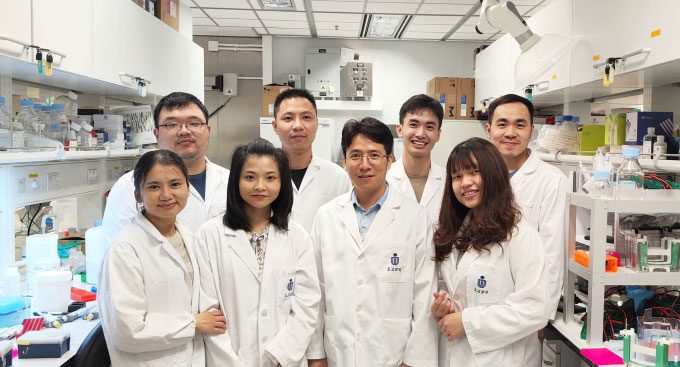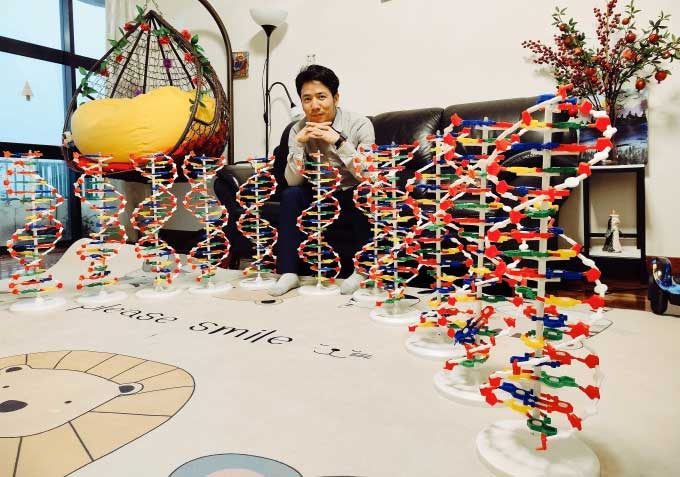For the first time, a research team led by Associate Professor Nguyen Tuan Anh has discovered the mechanism for synthesizing microRNA, paving the way for research into the treatment of cardiovascular diseases, cancer, and neurological disorders.
This study was conducted by Vietnamese scientists at the Hong Kong University of Science and Technology (HKUST), marking a significant breakthrough in the field of molecular biology by uncovering the non-canonical mechanism of the microprocessor complex during the synthesis of microRNA (miRNA). This represents a new molecular biological mechanism of the microprocessor complex in miRNA synthesis, which has never been discovered before.
The finding opens up the possibility of developing and applying intervention methods such as gene therapy and treating diseases related to microRNA, including cancer, cardiovascular diseases, and neurological disorders. The research was published in the journal Molecular Cell in early June.

Associate Professor Nguyen Tuan Anh (front row, third from left) with the Vietnamese research team at the HKUST laboratory. (Photo: Research Team).
According to Associate Professor Nguyen Tuan Anh, the microRNA molecules play a crucial role in regulating gene expression. Dysregulation of microRNA can lead to various diseases in humans. For the past 20 years, scientists have sought to understand this, but only partially.
In this study, the team applied next-generation DNA sequencing technology to collect billions of sequence strands. They then utilized mathematical models and various bioinformatics methods to identify the most suitable biological model.
The result was the discovery of a new molecular biological mechanism of the microprocessor complex in the synthesis of microRNA, which could lead to the development of intervention therapies, such as gene therapy, applied to treat diseases related to microRNA, such as cancer and cardiovascular diseases. “Pharmaceutical and biotech companies can also use the results of this study to search for new drug targets and develop new therapies for diseases related to microRNA,” said Associate Professor Tuan Anh.

Associate Professor Nguyen Tuan Anh beside a DNA model. (Photo: Provided)
Professor Ting Xie, head of the Department of Life Sciences at the Hong Kong University of Science and Technology, stated that the work of Associate Professor Tuan Anh and his colleagues addresses one of the most challenging and important issues in the field of microRNA biology. Malfunctions in the process of microRNA synthesis can lead to various cellular metabolic disorders and diseases. “The discovery of the non-canonical mechanism of microRNA synthesis not only offers new insights into the mechanisms of microRNA synthesis but also paves the way for the regulation of microRNA for the treatment of many human diseases,” Professor Ting Xie said.
The research team will continue to build on this discovery to design artificial microRNA precursors for use in gene regulation technology. “These precursors, when introduced into cells, will generate a microRNA we have designed, helping to increase or decrease (regulate) the expression of a target gene we aim for,” said Associate Professor Tuan Anh.
Associate Professor Tuan Anh noted that before going abroad, team members studied at the University of Natural Sciences, Vietnam National University, Hanoi, and Hanoi University of Pharmacy. He believes that Vietnamese graduates and engineers have the potential to advance further in the fields of science and technology. “Especially when given the opportunity to research, coupled with their existing passion, Vietnamese scientists have the capability to conduct in-depth research at an international level,” he stated, adding that they are very willing to collaborate and share knowledge within the scientific community.


















































